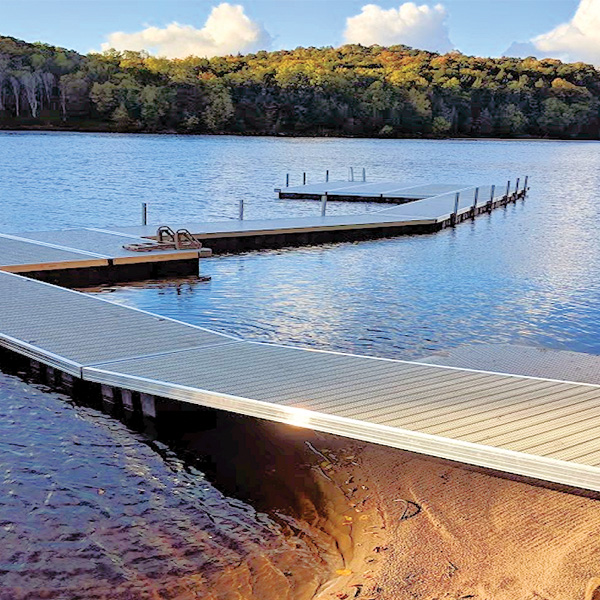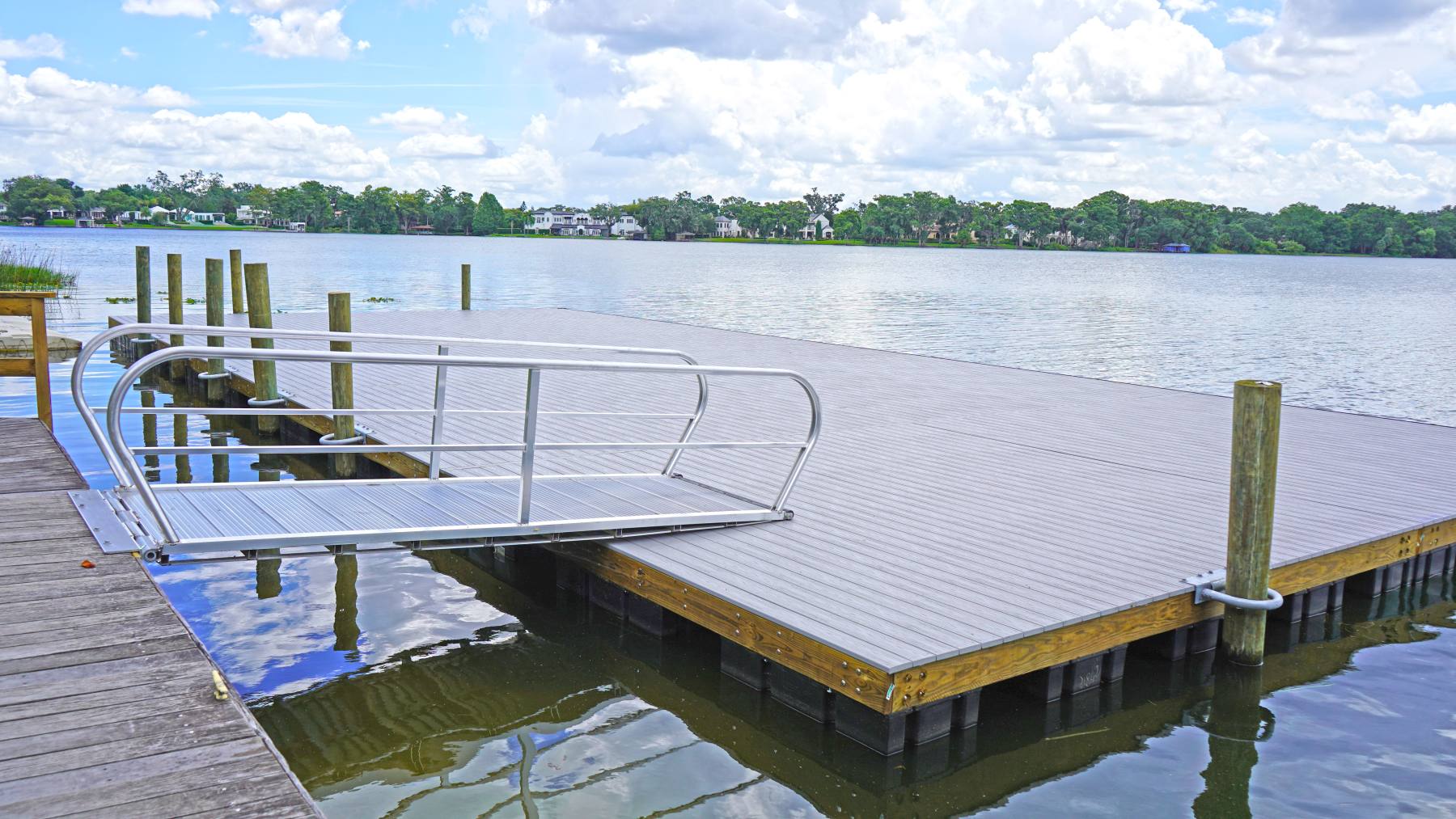Navigating the Options: Choosing the Right Dock Company for Your Floating Dock Task
Navigating the Options: Choosing the Right Dock Company for Your Floating Dock Task
Blog Article
Floating Docks: The Ideal Choice for Versatile Water Accessibility
Floating docks existing a compelling service for a variety of water access needs, providing adaptability that transcends standard mooring alternatives. Their capacity to adjust to ever-changing water levels while making certain stability and safety makes them especially beneficial for both entertainment and commercial applications. The modular nature of floating docks assists in modification, catering to specific requirements. The nuances of installment and maintenance, alongside the range of applications, require a closer assessment to totally value their possible benefits and effects for waterway accessibility methods.
Benefits of Floating Docks
Floating docks deal numerous advantages that enhance water accessibility for different applications. Their ability to drop and rise with transforming water levels makes them especially useful in environments with rising and fall tides or seasonal variations. This flexibility guarantees that vessels can quickly anchor without issue for the water's depth, supplying a reputable platform for recreational, industrial, and commercial usages.
Additionally, floating docks are often created from resilient materials that resist corrosion, making them suitable for long-term usage in marine settings. Their installation is commonly less intrusive than standard fixed docks, lowering the environmental impact and promoting quicker deployment (floating dock services). This adaptability permits for much easier moving or reconfiguration according to individual requirements or ecological adjustments
Safety and security is another crucial benefit; floating docks can provide steady gain access to for individuals boarding or getting off from watercrafts and decrease the danger of accidents linked with unstable surface areas. Furthermore, they can be made to accommodate a variety of devices, such as fenders and cleats, boosting functionality. Generally, floating docks stand for a reliable option for enhancing water gain access to throughout diverse fields while promoting safety and ecological sustainability.

Kinds Of Floating Docks
Different kinds of floating docks accommodate different needs and settings, each designed with certain functions to maximize capability. One of the most typical kinds consist of modular docks, which include interlocking sections that permit for simple customization and growth. These docks are ideal for recreational usage, as they can be customized to fit different boat sizes and water conditions.
Another popular choice is the stationary floating dock, which continues to be anchored in place yet floats with changing water degrees. floating docks. This kind is specifically fit for locations with minimal tidal changes, offering secure access for fishing or swimming. Furthermore, there are drive-on docks, which include a sloped layout that allows boats to conveniently drive on and off, making them suitable for individual boat and smaller vessels
For industrial applications, durable floating docks are available, built from strengthened materials to hold up against substantial tons and rough marine settings. Lastly, environment-friendly floating docks use sustainable products and styles to reduce environmental effect, commonly incorporating functions like plant life to sustain regional wildlife. Understanding the numerous sorts of floating docks makes certain that individuals can select the most appropriate solution for their specific demands.
Installment Refine Summary
An effective setup of floating docks requires careful preparation and focus to detail to make sure optimum efficiency and security. The initial action involves analyzing the website conditions, including water depth, present, and possible barriers. This assessment notifies the choice of the ideal dock products and layout customized to the specific atmosphere.
Next, getting needed permits is vital, as several jurisdictions have guidelines concerning building on water bodies. The setup can proceed once approvals are safeguarded. Begin by preparing the foundation, which might include anchoring systems or pilings customized to the dock kind and local problems.
Complying with the structure arrangement, set up the dock areas according to manufacturer specifications. Make certain that all components are firmly fastened and aligned to endure environmental stresses. Position the dock in the marked location, ensuring it is level and secure.

Maintenance Tips and Ideal Practices
After the installation process is complete, continuous upkeep plays an essential function in guaranteeing the longevity and capability of floating docks. Regular inspections should be performed to identify any kind of indicators of damage, damage, or wear - floating dock company. Inspect for any loose installations, cracks, or separation in the dock areas, as these can compromise structural honesty
Cleaning the dock is vital to eliminate particles, blog here algae, and other build-up that can influence its appearance and safety and security. Use a gentle pressure laundry see this page periodically to maintain sanitation without causing damages to the surface area. Additionally, using a safety sealant every couple of years can help improve longevity and withstand ecological wear.
Take notice of the mooring lines and supports, ensuring they are cost-free and secure from rust. Change any kind of abject components quickly to avoid risks. Seasonal modifications might likewise be required; throughout severe weather conditions, repositioning or strengthening the dock can avoid damage.
Applications for Floating Docks
Floating docks offer a multitude of applications, catering to both industrial and entertainment requirements. In leisure settings, they give smooth accessibility to waterways for tasks such as boating, angling, and swimming. Their adjustable nature enables setup in differing water levels, guaranteeing safe and stable gain access to no matter of tidal changes.
Commercially, floating docks are indispensable for marinas and waterfront organizations. They assist in the docking of vessels, enabling reliable discharging and packing of products. Their modular style allows anchor for very easy growth or reconfiguration to fit altering service needs, making them excellent for watercraft leasings, excursion operations, or fishing charters.
Additionally, floating docks are used in ecological applications such as water research and habitat reconstruction. They can function as systems for scientific studies, keeping track of water quality, or conducting wild animals studies without disturbing delicate ecological communities.
In commercial contexts, floating docks are used in building projects, providing accessibility to hard-to-reach areas for equipment and employees. Their adaptability, sturdiness, and minimal influence on the atmosphere make them an optimal option for a large range of applications, boosting both capability and access in various water-based atmospheres.
Verdict
Finally, floating docks represent an ideal service for diverse water access needs, owing to their versatility, toughness, and modular style. These frameworks assist in safe mooring for numerous applications while minimizing environmental impact throughout setup. The minimized maintenance needs additionally enhance their practicality. Thus, floating docks work as a valuable property for recreational, business, and environmental tasks, ensuring reliable access to waterways and promoting sustainable practices in aquatic environments.
Floating docks present an engaging solution for a variety of water access requires, offering versatility that goes beyond traditional mooring alternatives.Floating docks deal many advantages that improve water gain access to for various applications. In general, floating docks stand for an efficient option for improving water gain access to across varied markets while promoting security and ecological sustainability.
One more prominent choice is the stationary floating dock, which remains anchored in place yet floats with altering water degrees.In final thought, floating docks stand for an ideal option for varied water accessibility requires, owing to their adaptability, resilience, and modular style.
Report this page